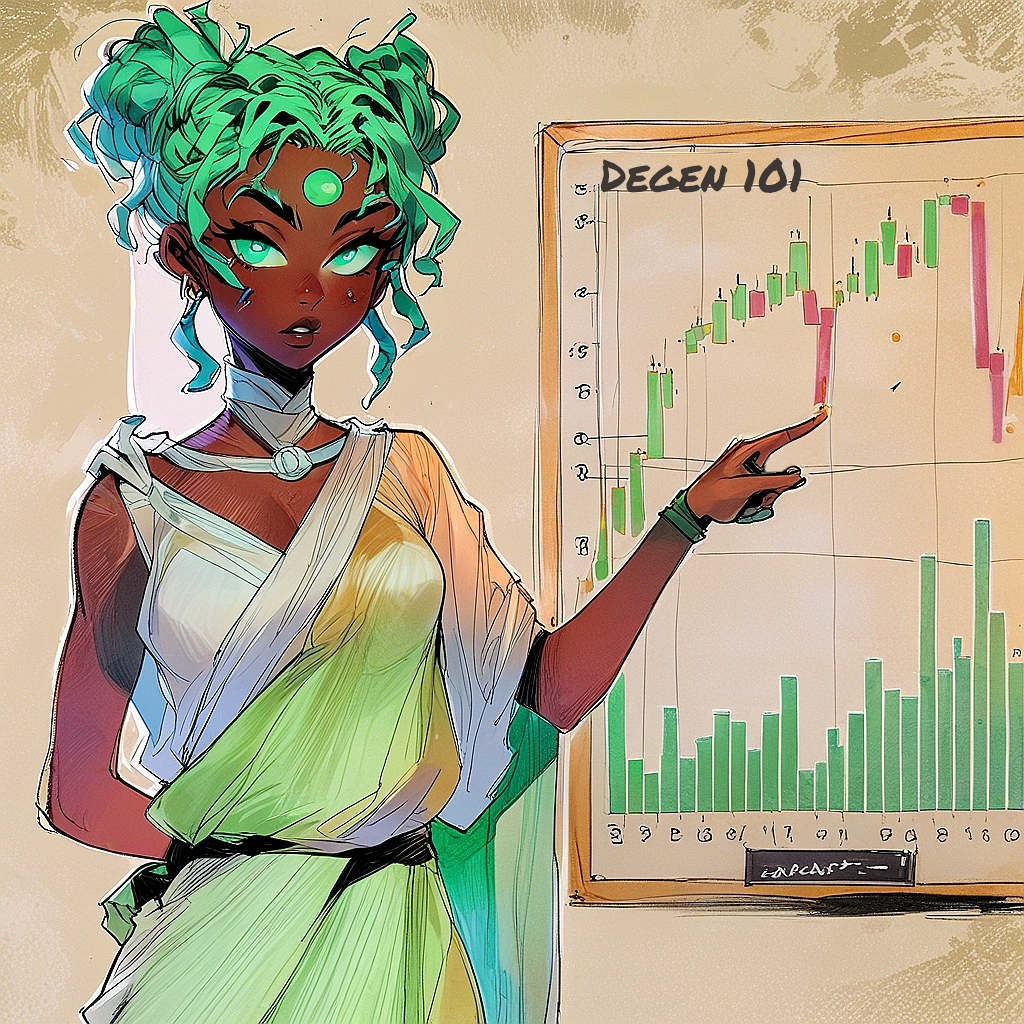What is a token? What is an altcoin? What the fuck is a memecoin? Is it the same as a “shitcoin”? Why is this coin worth billions when as far as I can tell it’s just a picture of a dog?
Strap your butts in. This is one hell of a topic and some of these questions don’t have a consensus answer.
In this article we will look to break down the mainstream definitions of these terms, and talk a little about the other ways in which they are used?
This article is designed to be read in conjunction with Types of Cryptocurrency: Coins and Blockchain. If you haven’t already we would recommend you check out that article first.
What is a Crypto “Token”:
So the words “token” and “coin” are colloquially used in an interchangeable fashion. They are used so interchangeably, in fact, that we had to proofread this article multiple times to catch every instance in which we ourselves used the incorrect word.
This is generally fine, but it is important to know the distinction, even if you don’t use it when talking about them.
We break this down more thoroughly in the Coins article mentioned above; but for the purposes of this series of articles we will be distinguishing a “token” from a “coin” as follows:
Crypto Coin: The native cryptocurrency of a #layer 1# blockchain.
Crypto Token: A cryptocurrency built on top of a blockchain.
This might be a little confusing at first, but we promise we will dive into it more. Lets have some examples:
Ethereum is a public blockchain; anyone can add to (but not remove from) it. Ethereum or ETH is also the word used to refer to the native cryptocurrency on the blockchain; it is used to transact on the Ethereum blockchain. ETH is a coin.
Something like Chainlink (LINK) is built on the Ethereum blockchain. It is used to interact with Chainlink’s functionality and integrations. LINK is a token.
Every type of cryptocurrency mentioned in this article will be a “token”, when using the definition above.
Are “coins” better than “tokens”:
Not necessarily. If we’re talking in terms of quick returns on investment, then some tokens have been mind blowingly good. Others have been the quickest path to losing all your money in human history.
There are many excellent tokens, and many excellent coins, the inverse is also true for both. On the whole, established blockchain “coins” have less volatility than tokens, but in the world of crypto, that’s still a hell of a lot of volatility.
One thing to consider from an investment standpoint is the reliance of a token on its underlying blockchain.
Generally we have seen that tokens built on a blockchain will rise and fall in price with that chain. So, for instance, generally speaking, if Ethereum has a sharp drop in price, so will most (not all) of the tokens built on top of it.
What are altcoins/memecoins/governance tokens/shitcoins/dogcoins etc. etc. etc.
Okay so there are a ton of terms out there to refer to the many types of token. As a beginner this can be incredibly overwhelming.
Not only that but it’s very easy to get false impressions about a token based on the language used around it. For instance someone might refer to #LINK# as a “utility token” in a positive way. You might then see LINK perform very well*.
As a newbie it can be very easy to come away thinking utility token = good investment. This is not always the case.
Below we have given sometimes brief and sometimes more detailed definitions of many of the terms used to refer to various tokens. Sometimes these definitions are used differently; we’ve tried to include this.
Please bear in mind this is for guidance only; it’s more important to understand a token’s value statement than what class it falls into. Think of it like music; not knowing the subgenre doesn’t mean you can’t form an opinion on a song.
*LINK was used as an example as it is a well known token. We offer no advice, good or bad, on LINK as a project or investment.
Types of cryptocurrency token:
Something important to remember is that ANYONE can make a crypto token. It is actually incredibly easy to do so. They can also (often without consequence) say whatever they like about it. We’d recommend checking out Cryptocurrency as an Investment: Evaluating Cryptocurrency for some basic details on how to dig deeper.
A running theme throughout these definitions is this:
Often projects create a token just for something to sell. If, in your opinion, the project would operate just as well without a token as with one; don’t be afraid to ask for clarity on what it adds.
Altcoin:
So this one is used in a couple of different ways. Originally (and often still) it was used to refer to any cryptocurrency that is not Bitcoin. This includes both “coins” and “tokens”.
Sometimes now it is used to mean any cryptocurrency that is not Bitcoin or Ethereum or alternatively any cryptocurrency that is not a major layer 1 blockchain coin.
Utility Token:
This is meant to mean tokens that provide access to a product or service within a blockchain ecosystem. If a project offers a service, their utility token would be the token required to pay for that service.
People (and more often projects themselves) misuse this term to add extra hype to their token; not all “utility” is created equally. It is not uncommon for projects to make a real stretch to try to add utility to a token which, in fact, was only created so they had something to sell.
People might also refer to a token offering something like #governance# as having utility.
Security Token:
Tokens that represent ownership or other rights in a real-world asset (RWA), like shares in a company. They are (supposed to be) subject to securities regulations.
Really something is only a “security token” if they properly adhere to those regulations; there have been many instances of projects marketing themselves as a security token and it being a scam.
Governance Token:
Tokens that grant holders voting rights in the development and operation of a blockchain project. Holders can influence decisions regarding the project’s protocol.
We have some strong views on governance and before you decide to throw all your money at a governance token we would recommend reading: Governance: What it is and why you probably don’t have it
Stablecoin:
Cryptocurrencies designed to minimize price volatility by being pegged to a more “stable” asset such as the US dollar. They are a way in which many traders hold funds #on-chain# whilst not wanting to commit them to the market.
Before continuing to read please note: just because a company or project claims they have backed a token, doesn’t mean it is true. Make sure you look into just how stable a stablecoin is, before trusting it with your money.
The best known examples are USDC and USDT. These are both example of #fiat# backed currencies and are (according to their associated projects*) 100% backed by real life funds.
Other types of “stablecoin” include “crypto backed” stablecoins, “asset backed” stable coins and “algorithmic” stable coins.
Cryptobacked stablecoins are backed by a fund of other cryptocurrencies. Asset backed stablecoins are backed (in theory) by a real world asset – for instance it might be tied to the price of gold.
Algorithmic stablecoins are designed to be stable through use of an algorithm – A simple example might be tying the value of each token to $1 worth of a different cryptocurrency. A notorious example of an algorithmic stablecoin is UST – which #depegged# causing its holders heavy losses.
Historically fiat backed coins have less risk of de-pegging. There are some use cases in which one of the alternative styles of stablecoin makes sense. If, however, you’re simply looking to store your money on-chain in the form of US dollars, then history says that a fiat-backed coin is your safer option.
*On re-read we realise this sounds sinister; both USDC and USDT are widely used; whilst we cannot recommend for or against them we wanted to clarify we have no reason to think that they do not have the claimed funds.
Memecoin:
Tokens created as a joke or based on internet memes, often without serious intent. They generally have no intrinsic “value” or “use”; their value is derived purely from hype. This is actually also true for a lot of projects that pretend to have value or use, but we digress…
There are thousands of memecoins. At the time of writing, in 2024, they have dominated the market so far.
The best known example is Dogecoin; currently the 8th most successful cryptocurrency based on #market cap#.
Some projects try to ride the line between memecoin and serious project; in this instance a memecoin might have some use case outside “for the lolz”.
Shitcoin:
So this word is used in two main ways:
- A derogatory term for tokens with little to no value or purpose, that was created with the sole intention of making quick money.
- Another word for a memecoin.
NFT (Non-Fungible Token):
Unique digital assets that represent ownership of a specific item or piece of content, such as art, music, or virtual real estate.
They are “non-fungible” in that each token is a unique entity on the blockchain; they are not exchangeable or interchangeable in the same way a currency is.
NFT’s are in their infancy and are used as anything from digital art (expensive jpegs) to online gaming assets.
Fan Token:
Tokens that provide holders with access to exclusive content, voting rights, or rewards from sports teams, artists, or other celebrities. Often just a glorified memecoin or used as a cash grab by a “celebrity”.
Fan tokens are a common target for imposters, hoping to make quick money off a pre-existing fanbase or community.
Reward Token:
Tokens given as rewards for participating in a platform’s ecosystem, often through activities like staking, providing liquidity, or other contributions. Often take the form of #NFTs#.
DeFi Token:
In theory Tokens used within #DeFi# platforms to facilitate financial services like lending, borrowing, and trading without intermediaries. When used in this way these would be a type of Utility Token.
Just because a DeFi platform has a token does not mean it fits into the definition above.





